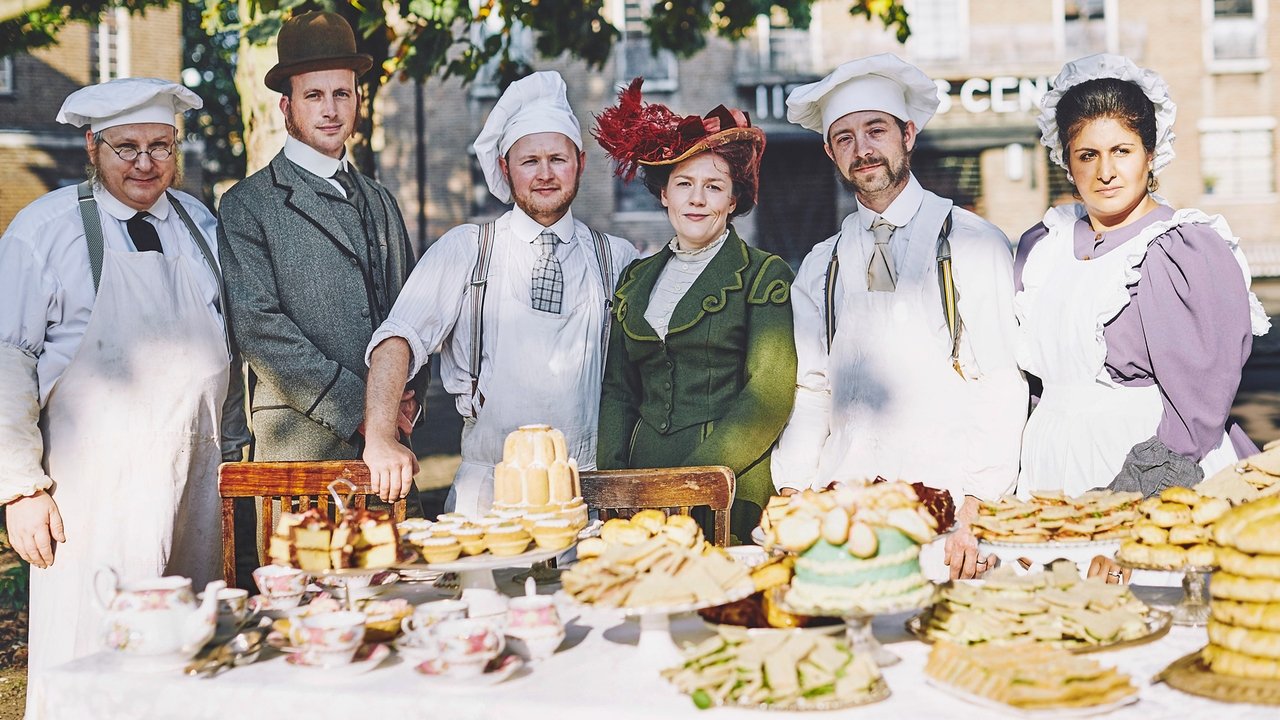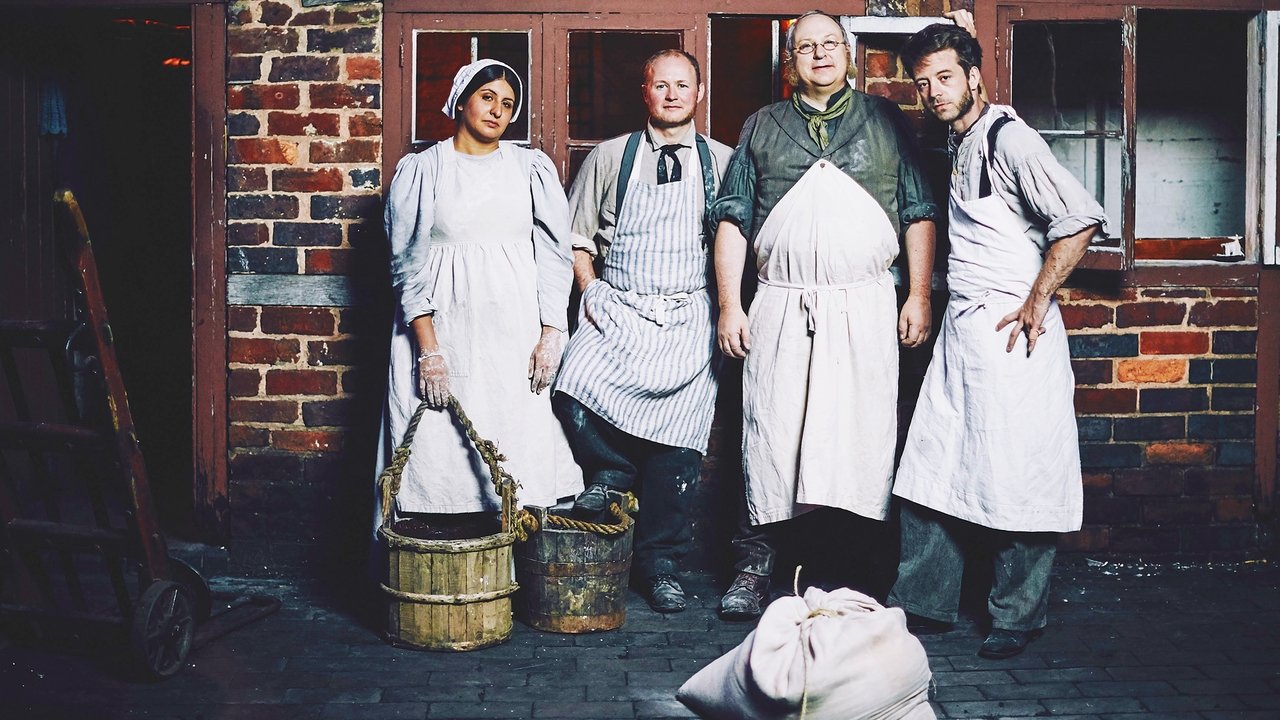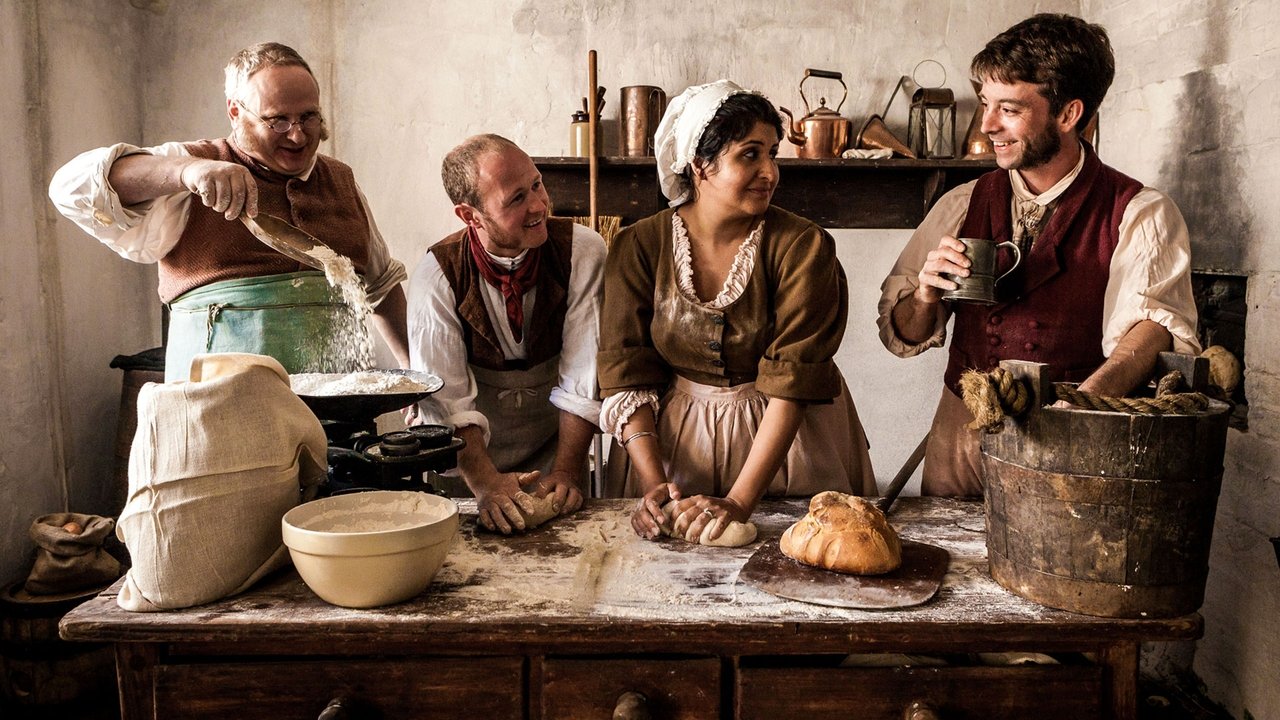«- Back
Where to watch "Victorian Bakers"

3. Episode 3
No release date yet
The bakers have said goodbye to the brutal working conditions of the 1870s urban bakery. It is now 1900 and Britain's middle classes are enjoying the democratisation of luxury. Bakers were quick to cash in. This time, the bakers have an elegant shop on the high street. Their new workplace boasts huge steam-belching ovens, but it is the early 20th-century electric dough mixer that takes the hard work out of baking. The technology has changed beyond recognition and so has their trade. The bakers experience first-hand the incredible diversification their forebears underwent in order to stay in business. Now they are uniformed professionals who have to turn out a huge range of pastries, cakes and confectionary, as well as novelty breads, all typical of a late-Victorian bakery. At last, cake maker Harpreet Baura can take the lead, even though there were no female master bakers in 1900. The sheer ingenuity and scientific knowledge possessed by late Victorian bakers impresses them all as they get to work filling their shop window. But it is their last task - an authentic but epic afternoon tea, including fiddly Genoese sponge baskets with angelica handles and tongue and truffle sandwiches - that really tests them.

2. Episode 2
No release date yet
The bakers have left the rural bake house and the golden age of baking behind, this time it's the 1870s and they're moving into an urban bakery in the midst of the Industrial Revolution. Their new bakery is totally authentic and it boasts two coal-fired ovens. At this time it is coal that fuels Britain's epic industrial expansion and bread that feeds its ever-expanding urban workforce. A growing middle class start demanding 'fancy breads' for breakfast and so the bakers must now bake through the night. Machinery may be powering the nation, but manual labour is cheap and so the bakers are still kneading by hand and are expected to double their output. It's back-breaking work, so much so that one baker decides to do as some Victorian bakers did and use his feet. The bakers experience first-hand the exhaustion and squalid working conditions their forebears endured and it's no surprise to hear that Victorian bakers' lives were tragically short. Morale is low, but it plummets when they are tasked with using the adulterants their forebears added to Britain's bread, and some start to question whether it's safe to continue. Britain may have been an industrial superpower, but it's the arrival of imported finely-milled flour and cheap sugar that finally sweetens life for the bakers as it did for the masses. Cake-maker Hapreet Baura tries her hand at producing hugely popular London buns, the cupcake of their day.

1. Episode 1
No release date yet
Four modern bakers bake their way through the era that gave us modern baking as we know it - the reign of Queen Victoria. Experts Alex Langlands and Annie Gray join them to tell the incredible story of our daily bread. The journey begins in 1837, when bread was the mainstay of most diets and bakers were at the heart of every community. A rural bake house has been kitted out exactly as it would have been in the 1830s. The bakers must get to grips with centuries-old methods of bread-making and that means doing absolutely everything by hand. The first loaves are made with heritage wheat flour and brewers' yeast in a tiny wood-fired oven. It is bog standard bread that fed Victorian rural workers but to modern palettes it is an absolute revelation. Fifth-generation baker John Swift gets a taste of the bread his ancestors once made and artisan baker Duncan is in his element in this unhurried, organic world. There is no shop, so the bakers deliver door-to-door. For industrial baker John Foster, who deals with customers as far afield as China, the fixed demand and lack of competition enjoyed by Victorian bakers is an utter joy. But the idyll doesn't last. In the 1840s, poor harvests and an economic downturn saw the price of wheat rocket, so barley bread must be made for the poor. It is an irony not lost on the bakers that this bread would only sell in the poshest artisan bakeries today. But it is when they have to turn their hand to making crammings - Victorian chicken feed - that their forebears' role in feeding a starving nation really hits home.


























